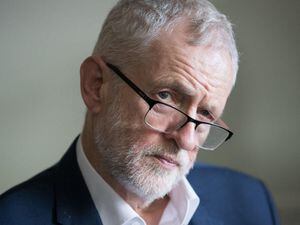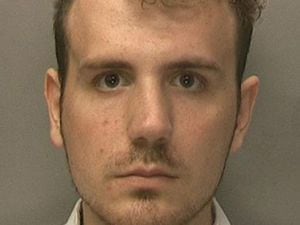Corbyn sets out measures to speed up efforts to tackle anti-Semitism
Labour leader Jeremy Corbyn acknowledged some complaints had taken too long to resolve.

Jeremy Corbyn has set out plans which could speed up Labour’s disciplinary processes in the most serious cases of anti-Semitism.
The Labour leader told the shadow cabinet that he would propose “a new way of dealing with the most extreme cases” at a meeting of the party’s ruling National Executive Committee (NEC) on Tuesday.
Setting out plans to tackle the “poison” of anti-Semitism, Mr Corbyn said the processes for dealing with serious cases were “not good enough” and some had taken too long to resolve.
He backed a plan which would allow the most serious cases to be referred to a special panel consisting of general secretary Jennie Formby and NEC officers which would have the power to expel anti-Semites.
This would allow for more rapid expulsion in the most serious cases, Labour insiders said.
But he also set out an alternative proposal which would give existing NEC anti-Semitism panels the power to impose a suspension or expulsion, with a right of appeal to the National Constitutional Committee (NCC).
Addressing the shadow cabinet ahead of a meeting of the Parliamentary Labour Party, Mr Corbyn said: “It is wrong to deny there is anti-Semitism in the Labour Party. And those who deny that it does exist are part of the problem.
“We have to stand for a serious, anti-racist, inclusive socialism.”
Mr Corbyn insisted there had been improvements in the disciplinary process but “I also know that some complaints have taken too long to deal with”.
“This is not good enough. Our members don’t want to share their party with anyone who is racist – and they want to be able to demonstrate there is no place for anti-Semitism among them.
“Some of the hate and bigotry displayed on social media would count as gross misconduct in any workplace, and must be treated similarly robustly in the Labour Party.
“Therefore, at the NEC tomorrow, I will propose that we adopt a new way of dealing with the most extreme cases.
“Defining what would qualify as an extreme case of hate and bigotry is of course a sensitive and complex area, and I would like the NEC to look at that in more detail.”
The shadow cabinet backed the proposal for “summary exclusion” outlined by the Labour leader, which he will put to the NEC.
In a statement issued by the shadow cabinet, the senior Labour figures said they also supported a proposal to introduce “independent oversight of our processes, and will continue to seek to engage with Jewish community organisations to build confidence”.
In the first six months of 2019 there have been complaints against 625 members relating to anti-Semitism, around 0.1% of the party membership.
There were also complaints about 658 people who are not in the party.
In 28 of the most serious disciplinary cases concluded by the National Constitutional Committee (NCC) in the first six months of 2019, eight members were expelled, three received an extended suspension and four received a warning.
One member received no action as the NCC found the charges to be unproven and 12 left the party after being referred to the disciplinary body.
NEC anti-Semitism panels referred 97 members to the NCC between January 1 and June 30, issued 41 with formal warnings and 49 with a “reminder of conduct”.
Three cases were closed as the full evidence suggested no further action should be taken.
Meanwhile, a meeting of Labour peers drew back from moving a motion of no confidence in Mr Corbyn’s leadership.
But a source said there was “unanimous support” for Baroness Hayter, who was sacked as a Brexit spokeswoman for comparing the “bunker mentality” of Mr Corbyn’s inner circle to the “last days of Hitler”.
The developments came after polling suggested a decline in the popularity of Mr Corbyn among party members.
The Times said 43% of 1,100 party members surveyed online by YouGov feel Mr Corbyn is doing a bad job and that confidence in his leadership has fallen by 24 points since March last year.
Seventy percent said anti-Semitism is a “genuine” problem, more than half were dissatisfied with the way he has handled Brexit, and one in four wanted him to step down immediately, the YouGov poll found.





